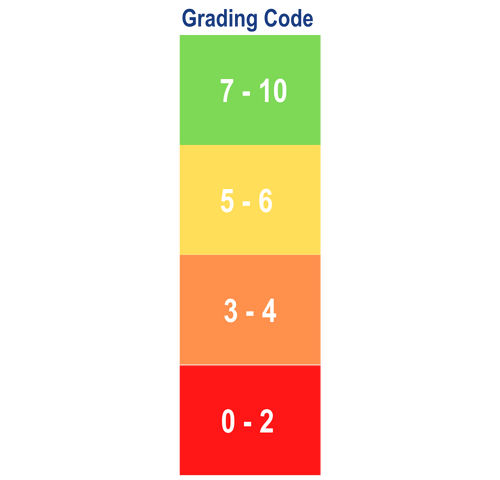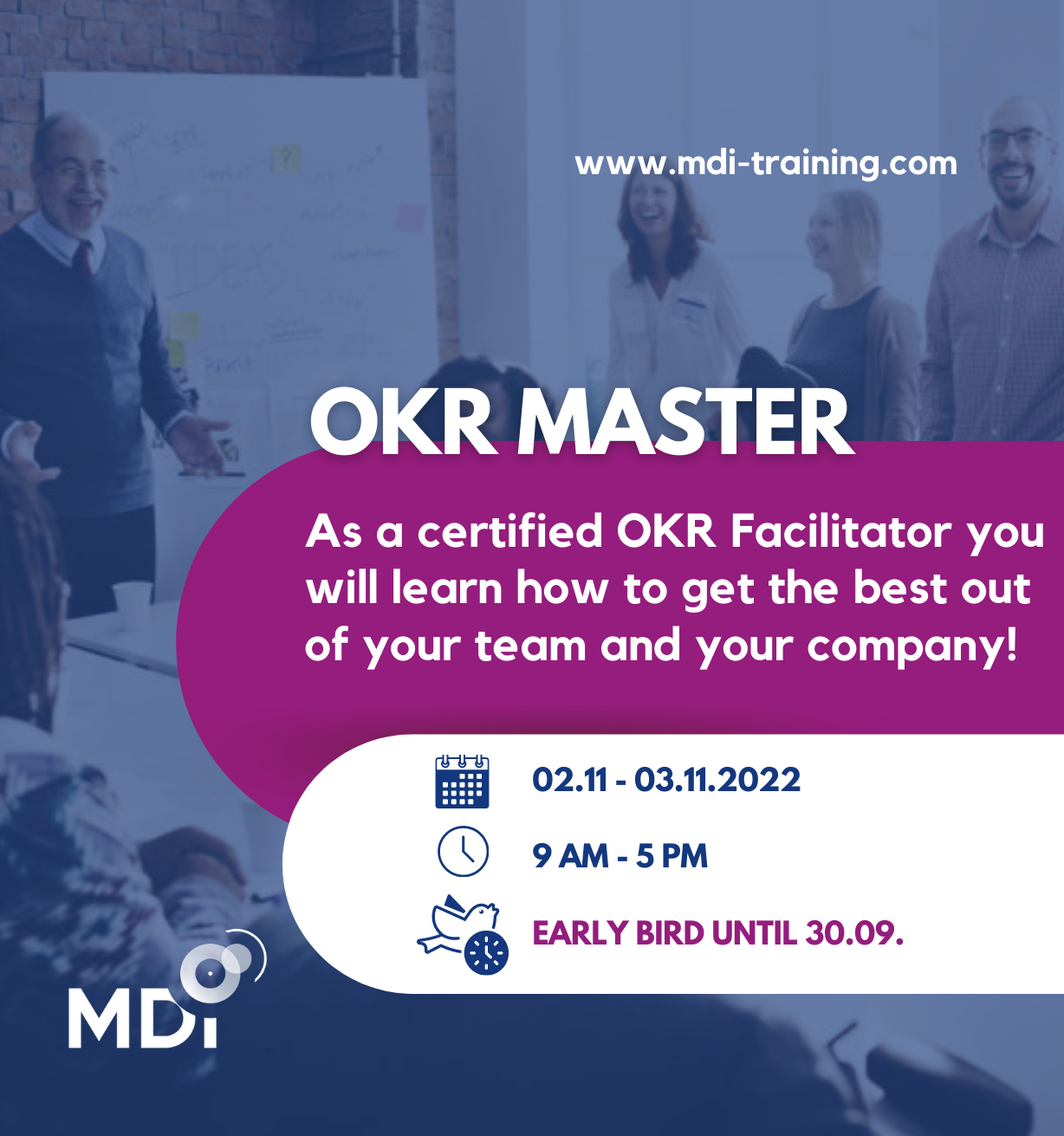
3 tips for efficient and sustainable OKR results
3 tips for efficient and sustain
Do you want to learn more about OKR – Objectives & Key Results? Here are 3 leadership tips for efficient and sustainable OKR results.
1. Reserve the meeting dates for a year in advance
Long-term OKR scheduling
Long-term scheduling makes it easier to adjust to spontaneous changes on short notice. OKR meetings should become a routine. Habits, once achieved, require little energy. When team members have learned that, for example, the OKR quarterly planning meeting is always on the last Thursday of the quarter and an OKR check-in meeting is scheduled every other Thursday in between – OKR becomes a no-brainer.
OKR should become a no-brainer
Experience has shown that only the timely meetings are a challenge due to many other planned events. If you always send the appointment invitations for the entire next year, the company will get used to it and you will have more energy for content-related work.
Very practical are serial appointments with individual corrections, e.g. if they fall on holidays or on the Christmas vacation.
2. Max. 8 participants in the quarterly OKR planning meeting
The optimal OKR meeting size
4 – 8 participants are an optimal size for quarterly planning meetings, in order to consider sufficiently different perspectives on the one hand and to be able to discuss actively and time-efficiently on the other. However, if the team consists of fewer members, that is also OK. 2-3 people can manage with much less time.
In planning meetings at higher hierarchical levels, such as when developing the OKR set for the entire company, more people often want to be present. This is understandable, since the quarterly priorities are set for the company.
However, discussions with more than 8 people can be lengthy or lead to different levels of participation.
Take turns and have a OKR rotation schedule
One proven way to keep the number of participants low is for owners of similar departments or functions to take turns participating. If you personally do not have a place in the next meeting, you can make your wishes known in advance via the backlog list or another representative.
Never has it been more important to adjust continually to a dynamic environment. OKR proves to be a great method to overcome crisis situations – read more about it here.

3. Visualize the progress also during the quarter
Discuss your progress regularly
Choosing well-worded OKRs is one side of success, the other is discussing progress regularly, e.g. bi-weekly. For this, it helps to visibly grade progress. Some prefer to work with color codes from the beginning. I.e. all Key Results start in red and partly reach the colors orange, yellow and green during the quarter. Others prefer to work with the numbers 0,0 – 1 during the quarter and use the colors only at the quarterly review. A third possibility are progress bars, where the filled area increases step by step.
Progress visualization increases motivation because messenger substances such as dopamine and endorphins are released in the brain.

Mag. Gunther Fürstberger
CEO | MDI Management Development International
Gunther Fürstberger is a management trainer, author and CEO of Metaforum and MDI – a global consulting company providing solutions for leadership development. His main interest is to make the world a better place through excellent leadership. He has worked for clients including ABB, Abbvie, Boehringer Ingelheim, DHL, Hornbach, PWC and Swarovski. His core competence is leadership in digital transformation. He gained his own leadership experience as HR Manager of McDonald’s Central Europe/Central Asia. At the age of 20 he already started working as a trainer.











